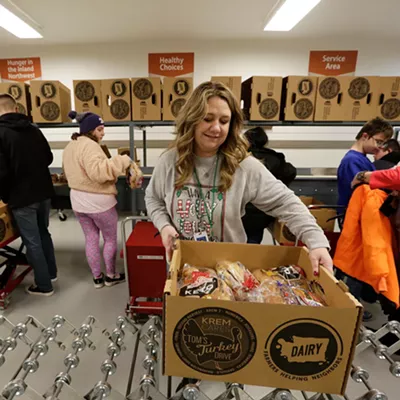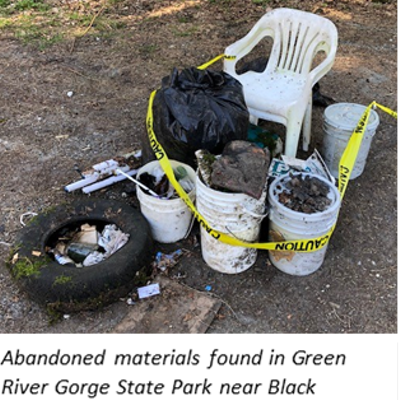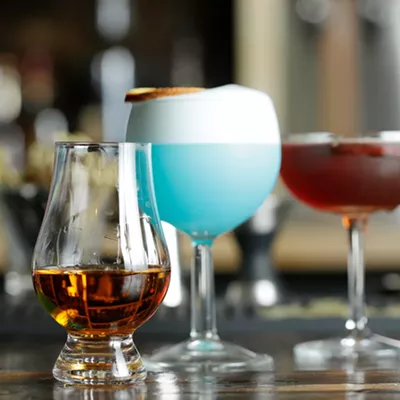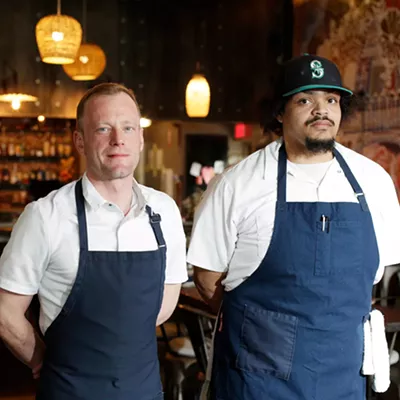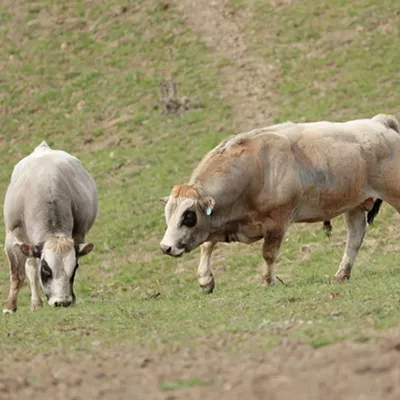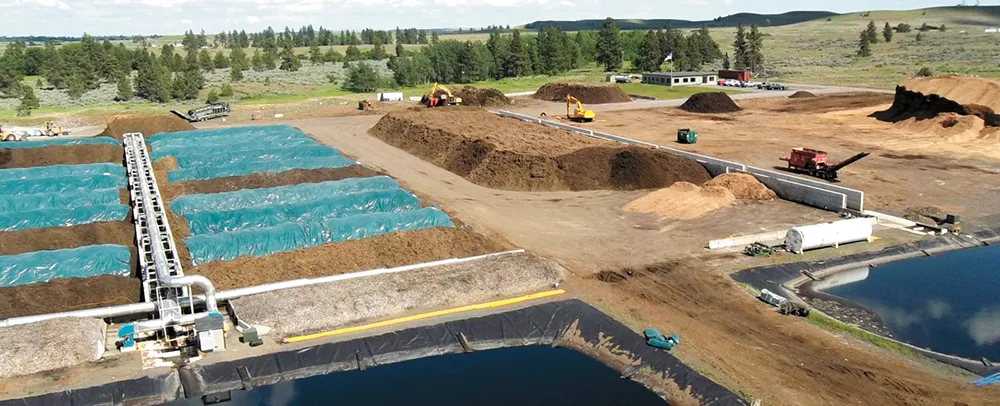
Say you have a leftover slice of pizza. Unfortunately, the leftover slice of pizza has olives on it — the grossest pizza topping known to humans — and so, lacking the manual dexterity to pick out each individual olive, you feel you have no other choice. You throw the pizza away.
So what happens next? Beyond losing out on the slice of olive-infected pizza, what sort of damage does that slice do to the environment?
It depends on where you are. If you're in the city of Spokane, your pizza is probably destined to once more return to the oven — this time, the roaring fires of the city's Waste to Energy plant.
Every day, a whole lot of food is being turned to ash.
A 2015-16 study found that about 7 percent of all waste thrown away in Eastern Washington was edible food. That's more than 51,000 tons of edible food, a figure that doesn't include inedible food parts like onion skins and chicken bones.
The study estimated that about 1.3 percent of the garbage collected in the Eastern Washington region was edible meat, fat or oil. Think of it like this: Of the nearly 173,000 tons incinerated last year in the Waste to Energy plant alone, that percentage equates to around 2,250 tons. A big steer produces about 500 pounds of beef. So imagine 24 big cows wandering into the Waste to Energy incinerator every single day. And then imagine shoveling in almost 54,000 pounds of edible veggies right after them.
"We certainly don't want to burn food," says Kris Major, education coordinator for the city of Spokane's solid waste department. "We do think that has a better place in people's stomachs and animals stomachs, as opposed to compost or the trash."
And while burning your paper plates and plastic bags might at least generate a little electricity in the process, Major says that's not the case with most foods.

"By its nature, food waste is a wet material," Major says, "It's certainly not going to burn well, to recover energy."
It's even worse in Spokane Valley or Liberty Lake. Those cities don't send garbage to the Waste to Energy facility at all. Instead, they hire Sunshine Disposal to truck the waste as far away as a landfill in Wenatchee. You might think it'd be better for the planet to simply bury organic waste instead of burning it, but landfills create all sorts of planet-harming gases — particularly methane. Generally, a waste-to-energy type facility releases about 15 and 20 percent less greenhouse gases than a landfill. And that's not even considering the accidental fires that can spring up from landfills, like a recent one in a landfill on the West Plains.
Even in the city of Spokane, a big chunk of our garbage goes to a landfill. Because of maintenance outages and overflows, over 7,000 tons last year meant for the Waste to Energy plant was sent to a landfill.
There's actually a third way to get rid of your food, at least during most of the year: Put it in your yard waste bin. Yes, it costs $16.80 per month, and is only picked up from March through November, but it's a great place to put not only pine needles from your yard, but also leftover pizza, and even a grease-soaked cardboard pizza box.
"About 33 percent of everything we throw in our garbage could have been composted," Major says.
In this case, that waste doesn't go to the Waste to Energy facility to be burned up. It goes to the Barr-Tech composting facility in Lincoln County, where bacteria turns your pizza into fertilizer. Unfortunately, restaurants can't use the city's yard waste bins. However, they can contract with private waste haulers, like Sunshine Disposal, to cart away food waste and maybe save on dumpster costs while doing it.
"Composting is considered carbon-neutral," says Scott Deatherage, operations manager for Barr-Tech. "We sell quite a bit into the [agricultural] market, and quite a bit into the local landscape market."
That fertilizer, in other words, could be used to grow new pizza toppings — like black olives — that cause perfectly fine pieces of pizza to be discarded all over again.
That's the circle of life. ♦





